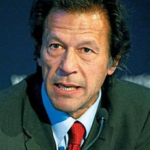
Twitter users remind UPSC candidates that failure is not the end, highlighting success stories and urging a new perspective
In the wake of the recently announced UPSC results for 2022, social media platforms have become a hub of support and encouragement for those who could not clear the prestigious examination. With less than 0.1% of the nearly 1 million candidates managing to qualify, users on Twitter are reminding aspirants that failure in the UPSC does not define their potential or limit their future success.
Ishita Kishore, a 26-year-old, emerged as the ‘All India Rank – 1’ topper in the UPSC results, fulfilling her lifelong dream. She expressed her joy and stated, “It’s a dream come true for me.” Alongside her, three other remarkable women—Garima Lohia, Uma Harathi N, and Smriti Mishra—secured top positions in the mains, reflecting the growing success of women in the civil services.
Despite these achievements, sympathies and words of encouragement have flooded social media for those who couldn’t crack the formidable examination. Twitter users are emphasizing the daunting odds, with statistics revealing that only around 80 individuals out of 1 million aspirants become IAS officers each year. Some have even highlighted the hypothetical scenario of Sundar Pichai, the CEO of Google, suggesting that even he would be a collector in Greater Noida had he chosen to pursue a career in the civil services.
Naman Shrivastava, CEO of the Global Governance Initiative, shared his thoughts on Twitter, highlighting the element of luck in the UPSC process. He stated, “UPSC is a game of luck after a point, and it is a travesty that many Indians are wasting the most productive years of their lives by appearing/reappearing for such exams mindlessly.” Shrivastava encouraged individuals not to let a single exam determine the trajectory of their lives during their twenties, which are generally regarded as the most productive years.
To further instill hope, stories of perseverance have emerged from this year’s UPSC results. Ishita Kishore herself cleared the exam on her third attempt, leaving behind a corporate career as a risk analyst at Ernst and Young. Uma Harathi, an engineering graduate, failed four times before ultimately succeeding. Swati Sharma, who secured the fourth rank, also faced failures before eventually cracking the exam.
Twitter users have highlighted the minuscule success percentage of 0.2% in the UPSC, emphasizing the overwhelming 99.8% failure rate. They argue that it may not be worth sacrificing one’s mental well-being and personal growth for an endeavor where the odds are heavily stacked against individuals. Tragically, data from the National Crime Records Bureau in 2020 revealed that approximately 2,500 people commit suicide each year in India due to examination failures, with Maharashtra recording the highest number of such cases.
While acknowledging the hard work and dedication required to pursue the civil services, social media users are urging aspiring candidates to maintain a balanced perspective and explore alternate paths if UPSC exams prove elusive. They argue that the opportunity cost of consistently revising the UPSC syllabus year after year can be detrimental to personal and professional growth.
The recent UPSC results saw a total of 933 candidates, including 613 men and 320 women, being recommended for various services by the Union Public Service Commission. The candidates belonged to different categories, with 345 being unreserved, 99 from the EWS category, 263 from OBC, 154 from SC, and 72 from ST.
As the dust settles on another





